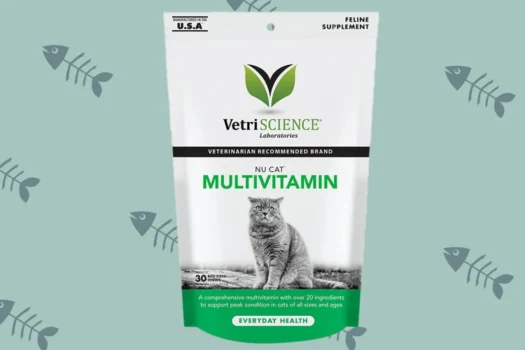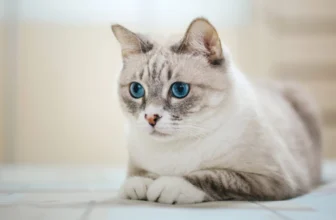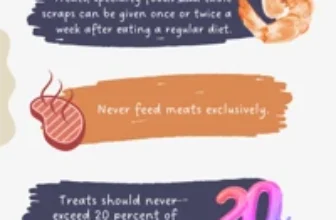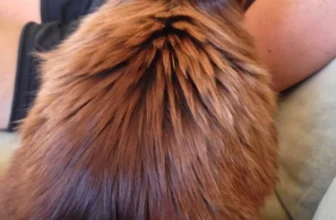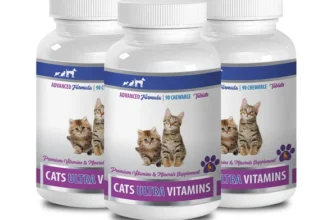As a cat owner, you always want to ensure that your furry friend is healthy and happy. Proper nutrition is one of the key components of maintaining your American Wirehair cat’s well-being. In this article, we’ll explore the world of vitamins and why they are crucial for your cat’s health. From vitamin A to biotin, we’ll cover all the essential vitamins that your American Wirehair cat needs to thrive. So, let’s dive in and discover how vitamins play a vital role in your cat’s overall health.
Why are Vitamins Important for American Wirehair Cats?
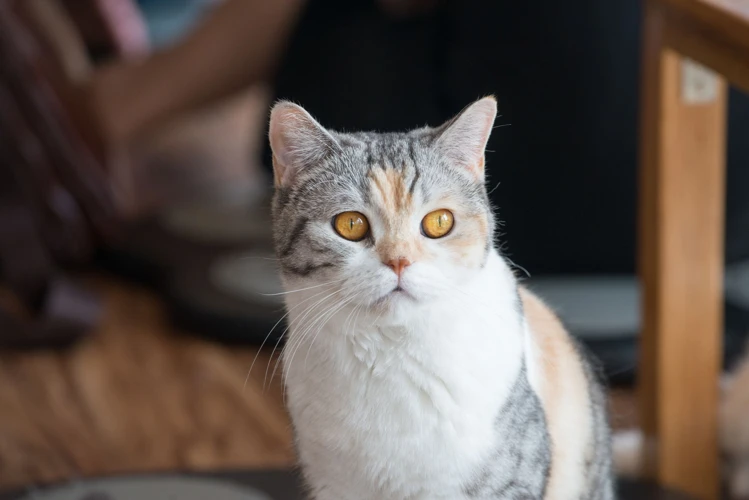
As a cat parent, you want to take the best possible care of your American Wirehair cat. Providing them with essential vitamins is one way to do so. While cats require a balanced diet, sometimes it may not be enough to fulfill their nutritional needs. That’s where vitamins come in, which can aid various bodily functions and processes. In this article, we will discuss why it is important for American Wirehair cats to have an adequate intake of vitamins, the types of vitamins essential for their well-being, symptoms of vitamin deficiency, and whether cats can have an overdose of vitamins. For further information about vitamins for American Wirehair kittens growth, click here.
What are Vitamins?
Vitamins are organic substances that are essential for normal growth and development. They are also necessary for the maintenance of good health in American Wirehair cats. Vitamins are classified as either water-soluble or fat-soluble, depending on how they are absorbed, transported, and stored in the body.
Water-soluble Vitamins are vitamins that are easily dissolved in water. This means they are not stored in the body long-term and any excess amounts are excreted in urine. The following table lists the water-soluble vitamins and their functions in the body.
| Vitamin | Function |
|---|---|
| Vitamin B1 (Thiamine) | Helps convert food into energy and is important for nerve and muscle function. |
| Vitamin B2 (Riboflavin) | Important for energy production, cell function, and growth. |
| Vitamin B3 (Niacin) | Helps convert food into energy, assists with proper digestion, and promotes healthy skin. |
| Vitamin B5 (Pantothenic Acid) | Assists with energy production and helps produce hormones and cholesterol. |
| Vitamin B6 (Pyridoxine) | Important for protein metabolism, brain development, and immune system function. |
| Vitamin B12 (Cobalamin) | Necessary for proper nerve function and DNA synthesis. |
| Biotin (Vitamin H) | Essential for healthy skin, hair, and nails. |
| Folic Acid (Folate) | Important for DNA synthesis, healthy brain function, and red blood cell production. |
| Vitamin C (Ascorbic Acid) | Necessary for immune system function, collagen synthesis, and antioxidant protection. |
| Choline | Important for nerve function, muscle movement, and maintaining healthy liver function. |
Fat-soluble Vitamins are vitamins that are absorbed with the help of dietary fat and are stored in the body’s fatty tissues and liver. The following table lists the fat-soluble vitamins and their functions in the body.
| Vitamin | Function |
|---|---|
| Vitamin A | Important for vision, immune system function, and skin health. |
| Vitamin D | Necessary for calcium and phosphorus absorption, bone health, and immune system function. |
| Vitamin E | An antioxidant that helps protect cells from damage and is important for immune system function. |
| Vitamin K | Important for blood clotting and bone health. |
It is important to ensure that your American Wirehair cat receives the necessary amount of vitamins in their daily diet to maintain proper health. Check out our article on daily vitamin intake for American Wirehair cats to learn more about providing the right nutrition for your furry friend. Additionally, it is important to be aware of the symptoms of vitamin deficiencies in cats which we will discuss further in this article. If you suspect your cat may have a deficiency, consult with your veterinarian and read our article on cat vitamin deficiencies to learn more about prevention and treatment. Finally, it’s crucial to ensure that any vitamin supplements given to your cat are safe and appropriate. Learn more about safe vitamin supplements for American Wirehair cats in our article at /safe-vitamin-supplements-for-american-wirehair-cats/.
What Do Vitamins Do?
Each vitamin plays an important role in maintaining the overall health and well-being of American Wirehair Cats. Here is a detailed breakdown of what each vitamin does:
| Vitamin | What it does |
|---|---|
| Vitamin A | Essential for good vision, growth and development, and a healthy immune system. It also helps keep skin and coat healthy. |
| Vitamin B | The various types of B vitamins are important for a range of functions such as cell growth and development, metabolism regulation, red blood cell production, and healthy nervous system function. |
| Vitamin C | An antioxidant that helps boost the immune system and aids in collagen formation for healthy skin, bones, and joints. |
| Vitamin D | Necessary for healthy bone growth, development, and maintenance. |
| Vitamin E | An antioxidant that helps maintain healthy skin and coat, protects cells and tissues, and supports immune system function. |
| Vitamin K | Necessary for proper blood clotting function. |
| Biotin (Vitamin H) | Involved in the metabolism of amino acids and fatty acids, and helps maintain healthy skin and coat. |
| Choline | Important for healthy liver function, brain development and function, and nerve function. |
| Niacin (Vitamin B3) | Helps convert food into energy, maintain healthy skin, and supports proper nervous system function. |
| Pantothenic Acid (Vitamin B5) | Another vitamin important for proper energy production and metabolism of fats and amino acids. |
| Riboflavin (Vitamin B2) | Necessary for cell growth and development, and helps breakdown carbohydrates, fats, and proteins for energy. |
| Thiamine (Vitamin B1) | Helps convert food into energy and maintains proper nervous system function. |
It’s essential for American Wirehair Cats to get a balanced diet that includes all of these vitamins to maintain good health and prevent any deficiencies from occurring.
Why Are Vitamins Important for Cats?
As obligate carnivores, American Wirehair cats derive most of their essential nutrients from animal meat. Although meat contains many necessary vitamins, it may not always be enough to meet the daily requirements of cats. This is where vitamins become crucial.
Vitamins are essential for cats because:
| 1. Growth and Development | Vitamins such as A, D, and E play a critical role in the growth and development of American Wirehair kittens. They support the development of strong bones and muscle growth. |
| 2. Proper Functioning of Body | Vitamins B and C help in the proper functioning of the body. B vitamins are important in cellular metabolism, while vitamin C supports the immune system. |
| 3. Eye and Skin Health | Vitamin A is essential for maintaining good vision and healthy skin. Without adequate amounts of vitamin A, a cat may suffer from night blindness or other eye-related problems. |
| 4. Maintenance of a Healthy Coat | Vitamin E supports the development of a healthy coat. It helps to prevent dry, flaky skin and promotes shine and luster in the coat. |
| 5. Prevention of Disease | Some vitamins, such as vitamin C, have antioxidant properties that help to prevent cell damage caused by free radicals. Antioxidants can reduce the risk of certain diseases, including cancer. |
Vitamins are essential for the health and well-being of American Wirehair cats. They support growth and development, maintain proper body functioning, support eye and skin health, promote a healthy coat, and can even help prevent disease.
Types of Vitamins Essential for American Wirehair Cats
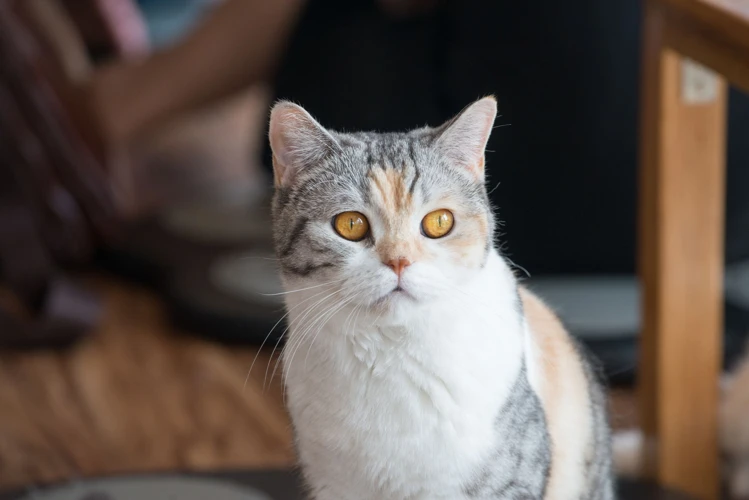
As much as we love our American Wirehair cats, keeping them healthy requires more than just food and water. Proper nutrition is crucial in ensuring their well-being, and that includes getting the right types of vitamins. But with so many to choose from, it can be overwhelming to know which ones our feline friends need. Let’s dive into the world of essential vitamins for American Wirehair cats, and learn what makes each one so important.
Vitamin A
Vitamin A is an essential nutrient for American Wirehair cats. This fat-soluble vitamin plays a vital role in maintaining their vision, growth, and development. According to veterinary experts, cats require a diet that is rich in Vitamin A to maintain their overall health. Here are some important points to keep in mind about this essential nutrient:
- Sources: Vitamin A can be found in both animal and plant-based foods. For American Wirehair cats, the best sources of Vitamin A are liver, fish, eggs, and dairy products.
- Functions: As previously mentioned, Vitamin A plays a crucial role in maintaining a cat’s vision. It also helps in promoting a healthy immune system, maintaining the integrity of the skin and coat, and supporting proper bone growth.
- Deficiency: If your American Wirehair cat is deficient in Vitamin A, they may experience a variety of symptoms such as night blindness, dry skin, and poor coat quality. In severe cases, Vitamin A deficiency can lead to weight loss, diarrhea, and respiratory infections.
- Excess: While Vitamin A is essential for your cat’s health, excessive intake can lead to toxicity. This can occur if your cat is fed large amounts of liver or other foods that are high in Vitamin A. Symptoms of Vitamin A toxicity in cats include loss of appetite, lethargy, and joint pain.
It is important to note that Vitamin A requirements may vary depending on your cat’s age, breed, and overall health. It is advisable to consult with a veterinarian before making any significant changes to their diet or supplement routine. By ensuring that your American Wirehair cat has a proper intake of Vitamin A, you can help promote their overall well-being and health.
Vitamin B
Vitamin B is not just one vitamin, but a group of vitamins that includes B1, B2, B3, B5, B6, B7, B9, and B12. Each vitamin in the B group has its own unique properties and benefits for your American Wirehair cat’s overall health.
Vitamin B1 (Thiamine)
Thiamine is important for your cat’s nervous system and helps in the breakdown of carbohydrates. A deficiency in thiamine can lead to neurological problems, weight loss and sometimes even death. Foods like meat, fish and whole grains are rich in thiamine, but it is also available as a supplement.
Vitamin B2 (Riboflavin)
Riboflavin plays a role in cellular metabolism and helps keep your cat’s coat healthy. A deficiency in riboflavin can cause poor coat quality, weakness, and even eye problems. Foods such as dairy products, meat, and eggs are excellent sources of riboflavin.
Vitamin B3 (Niacin)
Niacin helps in carbohydrate metabolism and is important for the nervous system, skin, and coat. A deficiency in niacin can lead to skin lesions, digestive issues, and even neurological problems. Foods like meat and fish are high in niacin, but it’s also widely available in cat food.
Vitamin B5 (Pantothenic Acid)
Pantothenic acid helps in the synthesis of lipids, neurotransmitters, and steroids, and is important for your cat’s overall health. A deficiency in pantothenic acid can lead to decreased growth, fatigue, and skin problems. Foods such as meat, poultry, and whole grains are rich in pantothenic acid.
Vitamin B6 (Pyridoxine)
Pyridoxine is important for protein, fat, and carbohydrate metabolism, and also plays a role in red blood cell production. A deficiency in pyridoxine can cause anemia, skin problems, and seizures. Foods such as meat, fish, and bananas are good sources of pyridoxine.
Vitamin B7 (Biotin)
Biotin is essential for healthy skin and coat, and helps in the metabolism of carbohydrates, fats, and proteins. A deficiency in biotin can lead to skin problems, hair loss, and even lethargy. Foods like meat, liver, and eggs are good sources of biotin.
Vitamin B9 (Folic Acid)
Folic acid plays a role in red blood cell production, DNA synthesis, and cell growth. A deficiency in folic acid can lead to anemia and poor growth. Foods like leafy greens, liver, and beans are good sources of folic acid.
Vitamin B12 (Cobalamin)
Cobalamin is important for nerve function and red blood cell production, and a deficiency can lead to anemia and neurological problems. Foods like meat and fish are good sources of cobalamin, but it’s also available as a supplement.
It’s important to provide your American Wirehair cat with a well-balanced diet that includes all the essential vitamins, including the B group of vitamins. If you suspect your cat has a vitamin deficiency, it’s essential to consult with your veterinarian to address the issue promptly.
Vitamin C
Vitamin C is a vital nutrient that plays an important role in maintaining the overall health of American Wirehair cats. Cats cannot synthesize vitamin C on their own, which makes it an essential nutrient for them.
What is Vitamin C?
Also known as ascorbic acid, vitamin C is a water-soluble vitamin that acts as an antioxidant in the body. It is an essential nutrient for cats that helps in the formation of collagen, cartilage, and blood vessels. It also supports a healthy immune system, allowing cats to fight off infections and diseases.
Sources of Vitamin C for Cats
While most animals can synthesize their own vitamin C, cats cannot. It is essential to provide them with a balanced diet that includes vitamin C-rich foods. Some of the best dietary sources of vitamin C for American Wirehair cats include:
| Food sources | Vitamin C content per 100g |
|---|---|
| Kale | 120mg |
| Broccoli | 89.2mg |
| Brussels sprouts | 85mg |
| Green peas | 40mg |
| Oranges | 53.2mg |
It is important to note that cats have specific dietary requirements, and some human foods can be harmful to them. It is recommended to feed cats only cat-specific foods that meet their nutritional requirements.
Symptoms of Vitamin C Deficiency
A deficiency of vitamin C in American Wirehair cats can lead to a wide range of health problems. Some of the most common symptoms of vitamin C deficiency in cats include:
- Slow wound healing
- Joint pain and stiffness
- Inflammation of gums
- Weakness
- Inability to fight off infections
If you notice any of these symptoms in your cat, it is recommended to take them to a veterinarian immediately.
Can Cats Get Too Much Vitamin C?
Unlike some other vitamins, it is nearly impossible for American Wirehair cats to get too much vitamin C through their diet. Since cats cannot synthesize vitamin C, any excess is excreted through the urine. However, it is important not to over-supplement vitamin C as it may cause gastrointestinal problems in cats.
Vitamin C plays a crucial role in maintaining the overall health of American Wirehair cats. As cat parents, it is important to ensure that their diet includes a balanced amount of vitamin C-rich foods to prevent vitamin C deficiency and promote optimal health.
Vitamin D
Vitamin D is one of the essential vitamins for American Wirehair Cats. It is a fat-soluble vitamin that helps to regulate the levels of calcium and phosphorus in their bodies. This vitamin plays a vital role in the development and maintenance of healthy bones and teeth. Vitamin D also helps to strengthen their immune system, support muscle function, and regulate insulin levels.
American Wirehair Cats can get vitamin D from two sources: food and sunlight exposure. Foods that are high in vitamin D include salmon, mackerel, tuna, and egg yolk. However, most cats do not consume enough vitamin D from food alone. Sunlight exposure is crucial for their vitamin D production. When exposed to sunlight, American Wirehair Cats’ skin synthesizes vitamin D from cholesterol.
However, it’s important to note that too much vitamin D can be toxic to cats, leading to vomiting, loss of appetite, and even kidney failure. The recommended daily allowance for vitamin D for cats is 75 IU (international units) per kilogram of body weight per day. Overconsumption of vitamin D can result in a buildup of calcium in their bodies, which can cause health complications.
To ensure that your American Wirehair Cat is getting the right amount of vitamin D, it’s essential to provide a balanced diet that includes foods with adequate amounts of this vitamin, along with regular outdoor activities. If you suspect that your cat is deficient in vitamin D, it’s important to consult with a veterinarian as soon as possible to receive proper diagnosis and treatment.
Below is an HTML table that shows the recommended daily allowance of vitamin D for American Wirehair Cats of different age groups:
| Cat’s Age | Recommended Daily Allowance of Vitamin D (IU) |
|---|---|
| Kitten (up to 6 months) | 200-400 |
| Adult Cat (7 months – 8 years) | 75 |
| Senior Cat (9 years and older) | 400 |
Vitamin D is an essential nutrient for American Wirehair Cats that provides a wide range of health benefits. It’s important to ensure that your cat is getting the right amount of this vitamin through a balanced diet and regular outdoor activities. If you notice any symptoms of vitamin D deficiency or overconsumption, it’s essential to consult with a veterinarian.
Vitamin E
Vitamin E is a fat-soluble vitamin that acts as an antioxidant in the body and helps protect cells from damage caused by free radicals. This vitamin plays an important role in maintaining healthy skin, coat, and immune system in American Wirehair Cats.
Sources of Vitamin E: Vitamin E can be found in various food sources, including fish, eggs, leafy greens, and nuts. However, the best source of vitamin E for cats is through their diet. Commercial cat foods are often fortified with vitamin E, and balanced homemade meals can also provide the necessary amount of vitamin E.
Recommended Daily Allowance: The recommended daily allowance of vitamin E for American Wirehair Cats is around 15 IU per day for every pound of their body weight. For example, a 10-pound cat would require around 150 IU of vitamin E per day.
Benefits: Vitamin E plays a crucial role in preserving the cell membrane’s integrity in American Wirehair Cats. It protects cells from oxidative damage and ensures a healthy immune system. Vitamin E also supports healthy skin and coat by reducing skin inflammation and preventing dry, flaky skin conditions. Additionally, it helps prevent blood clots by improving blood circulation and preventing the formation of plaque in arteries.
Symptoms of Deficiency: Vitamin E deficiency is rare in cats, but it can happen. Symptoms of vitamin E deficiency in American Wirehair Cats include muscle weakness, poor balance, tremors, and blindness.
Excess Intake: Like all fat-soluble vitamins, excess consumption of vitamin E can lead to toxicity. However, it is relatively rare in cats since they are efficient in metabolizing and storing vitamin E. Excessive intake of vitamin E can cause blood thinning and increase the risk of bleeding.
Vitamin E is an essential vitamin for the overall health and well-being of American Wirehair Cats. A balanced diet with proper vitamin E supplementation is necessary to maintain their physical and psychological health. Owners should consult with their veterinarians to ensure their cats’ proper vitamin E intake and monitor them for any signs of vitamin E deficiency or toxicity.
Vitamin K
Vitamin K is a fat-soluble vitamin that is essential for blood clotting in American Wirehair Cats. This vitamin can be found in two forms, namely, K1 and K2. K1 is present in green leafy vegetables, while K2 is found in meat, eggs, and dairy products. The table below provides more information on vitamin K and its role in the body of American Wirehair Cats.
| Vitamin K | Function | Sources |
|---|---|---|
| Vitamin K1 | Helps with blood clotting and prevents bleeding disorders | Kale, spinach, collard greens, and other green leafy vegetables |
| Vitamin K2 | Regulates calcium metabolism and ensures healthy bones and teeth | Eggs, meat, cheese, and liver oil |
Deficiency of vitamin K can cause excessive bleeding, bruising, and even internal bleeding, which can be severe. American Wirehair Cats that suffer from malabsorption disorders, liver disease, or those taking certain medications, such as antibiotics or anticoagulants, may be more prone to developing vitamin K deficiency.
It is important to note that American Wirehair Cats should consume a balanced diet that includes all essential vitamins, including vitamin K, to maintain good health. A veterinarian may recommend a vitamin supplement if a deficiency is detected to ensure that the cat is receiving the necessary nutrients. However, it is important not to give too much vitamin K to the cat, as excessive consumption can lead to toxicity. Consulting with a veterinarian is recommended before giving any supplements to your American Wirehair Cat.
Vitamin K plays a critical role in the blood-clotting mechanism of American Wirehair Cats. A balanced diet that includes green leafy vegetables, eggs, meat, cheese, and liver oil can ensure that your cat is receiving adequate amounts of vitamin K and other essential vitamins for their good health.
Biotin (Vitamin H)
Biotin, also known as Vitamin H or Coenzyme R, is an important nutrient that plays a key role in maintaining the health and integrity of American Wirehair cats. This water-soluble vitamin is a part of the vitamin B complex and is essential for a variety of bodily functions such as metabolism, growth, and development.
Sources of Biotin:
Cats can obtain biotin from their diet, and it is found in a variety of different foods such as liver, egg yolks, fish, and yeast. Some cat foods are also fortified with biotin to ensure that cats are getting the necessary amount of this essential nutrient.
Functions of Biotin:
Biotin is involved in a wide range of bodily functions in American Wirehair cats. It acts as a coenzyme and is involved in the metabolism of carbohydrates, fats, and proteins. Biotin also plays a role in DNA replication and gene expression, which is essential for growth, development, and maintaining the health of cells in the body.
Symptoms of Biotin Deficiency:
A deficiency of biotin can lead to a number of health problems in American Wirehair cats. Some of the common symptoms of biotin deficiency include:
| Symptom | Description |
|---|---|
| Hair loss | Thinning or loss of hair on the body and tail |
| Scaly skin | Dry, scaly skin that may be itchy or inflamed |
| Poor growth | Slow growth and development in kittens |
| Lack of appetite | Loss of appetite or decreased food intake |
If left untreated, biotin deficiency can lead to more serious health problems in American Wirehair cats.
Conclusion:
Biotin is an essential nutrient that plays a crucial role in maintaining the health and well-being of American Wirehair cats. Ensuring that your cat is getting enough biotin through their diet or supplementation can help prevent deficiencies and promote overall health. If you suspect that your cat is suffering from a biotin deficiency, be sure to speak with your veterinarian for proper diagnosis and treatment.
Choline
Choline is an important nutrient for American Wirehair cats as it helps with various bodily functions. Here are some key points to know about choline:
What is Choline?
Choline is an essential nutrient that is similar to a B-vitamin. It is important for various metabolic reactions in the body and helps with the maintenance of cell membranes, as well as with nerve function.
Functions of Choline:
Choline plays a crucial role in maintaining the health of the liver, brain, and nervous system. It is also important for the production of acetylcholine, a neurotransmitter that is vital for proper muscle function and memory.
Sources of Choline:
American Wirehair cats can get choline from several sources, including:
- Eggs: The yolk of an egg is a great source of choline. However, feeding cats raw eggs can be risky due to the potential for salmonella contamination.
- Meat: Poultry, beef, and fish are good sources of choline, but the amounts can vary based on how the meat is prepared.
- Dairy: Milk and cheese are also sources of choline, but they may not be as easily absorbed as other sources.
Symptoms of Choline Deficiency:
A deficiency in choline can lead to various symptoms in American Wirehair cats, including:
- Neurological issues: Confusion, disorientation, and difficulty walking may be signs of a choline deficiency.
- Liver problems: Choline deficiency can cause liver damage in cats, leading to liver failure if left untreated.
- Reproductive problems: Without enough choline, female cats may experience problems during pregnancy and may give birth to kittens with birth defects.
It’s important to provide American Wirehair cats with a balanced and nutritious diet that includes sources of choline to avoid these issues. It’s also worth noting that consuming too much choline can have negative effects, so it’s important to stick to recommended daily allowances.
Niacin (Vitamin B3)
Niacin, also known as Vitamin B3, is an essential vitamin for American Wirehair Cats. Niacin is responsible for maintaining healthy skin, improving digestive health, and promoting the nervous system’s proper functioning. Like other B vitamins, niacin also helps to convert food into energy, making it a crucial part of a cat’s diet.
In the table below, you can find more information about Niacin:
| Niacin | Benefits | Sources |
|---|---|---|
| Improves Digestive Health | Niacin plays an important role in regulating the digestive system. It helps to break down carbohydrates, fats, and proteins, ensuring the body can properly absorb and utilize these nutrients. | Chicken, Fish, Beef, Turkey, Pork, Peanuts, Avocado, Sunflower Seeds |
| Maintains Healthy Skin | Niacin helps to keep the skin healthy and promotes a shiny and lustrous coat. It also prevents the development of skin issues, including rashes and acne. | Chicken, Salmon, Tuna, Turkey, Beef, Pork, Peanuts, Sunflower Seeds |
| Promotes Nervous System functioning | Niacin is essential for the proper functioning of the nervous system. It helps to maintain healthy brain cells and improves cognitive function. | Turkey, Chicken, Salmon, Tuna, Beef, Pork, Sunflower Seeds |
It is important to note that like other B vitamins, niacin is water-soluble, meaning that it is not stored in the body. As a result, it is essential to include niacin-rich foods in your cat’s diet regularly. A balanced diet that includes niacin-rich foods can help to promote optimal health and prevent any deficiencies from developing.
If you notice any symptoms of niacin deficiency in your cat, including a dull coat, digestive issues, and impaired mobility, consult your veterinarian immediately. They can recommend a niacin supplement or suggest dietary changes that can help to address any underlying issues.
Pantothenic Acid (Vitamin B5)
Pantothenic acid, also known as Vitamin B5, is an essential nutrient that plays a crucial role in the overall health of American Wirehair Cats. This water-soluble vitamin is a member of the B-complex family of vitamins and is necessary for the proper functioning of the cat’s metabolism.
Some of the benefits of Pantothenic Acid (Vitamin B5) include:
| Benefit | Description |
|---|---|
| Energy production | Pantothenic acid plays a critical role in the body’s energy-producing processes, which is essential for cats that are active and need sustained energy throughout the day. |
| Healthy skin and coat | Pantothenic acid is necessary for the production of healthy skin and fur in cats, ensuring that they have shiny and smooth fur and are less prone to skin irritations and dryness. |
| Wound healing | This vitamin is essential for wound healing in cats, helping to speed up the healing process and reduce the risk of infection. |
| Stress reduction | Pantothenic acid plays a role in reducing stress levels in cats, which is crucial for their overall wellbeing and mental health. |
Pantothenic acid can be found in a variety of cat foods, including dry and wet formulations, as well as in nutritional supplements. However, supplementation should only be done under the guidance of a veterinarian since too much of this vitamin can lead to adverse health effects.
Deficiency of Pantothenic Acid (Vitamin B5) in cats can lead to a range of health problems, including skin irritation, loss of fur, reduced immune function, and decreased energy levels. It’s important to ensure that American Wirehair Cats receive adequate amounts of this vitamin in their diet, especially if they have a poor diet or underlying health issues.
Riboflavin (Vitamin B2)
Riboflavin, also known as Vitamin B2, is a water-soluble vitamin that plays a vital role in the growth, development, and overall health of American Wirehair cats. It is one of the essential vitamins for cats as it helps with proper digestion and metabolism of fats, protein, and carbohydrates. Here are some crucial aspects of Riboflavin that every cat owner should be aware of:
Sources of Riboflavin: Riboflavin can be found in many cat foods, including meat, poultry, fish, and dairy products. Apart from that, some cat food manufacturers also fortify their products with Riboflavin to ensure that cats receive adequate amounts of this essential nutrient.
Benefits of Riboflavin: Riboflavin plays a crucial role in many bodily functions, including maintaining healthy skin, eyes, and nervous system. It also helps with the production of red blood cells and supports overall growth and development in cats.
Symptoms of Riboflavin Deficiency: Cats that do not receive an adequate amount of Riboflavin in their diets are prone to various health issues, such as skin and eye problems, weight loss, and slow growth. Riboflavin deficiency can also cause cats to become more susceptible to infections and respiratory illnesses.
How Much Riboflavin Do Cats Need: The recommended daily intake of Riboflavin for most cats is around 0.3 to 0.5 milligrams per kilogram of body weight. However, this may vary depending on the cat’s age, size, and activity level.
Incorporating foods that are rich in Riboflavin into your American Wirehair cat’s diet can help ensure they get all the nutrients they need. However, it is always advisable to consult a veterinarian before making any significant changes to your cat’s diet or supplement routine. Being mindful of your cat’s nutritional needs can help improve their overall health and wellbeing.
Thiamine (Vitamin B1)
Thiamine, also known as Vitamin B1, is one of the essential vitamins necessary for the overall health and well-being of American Wirehair cats. Thiamine plays a crucial role in ensuring the proper functioning of a cat’s muscles, nervous system, and heart.
Listed below are some of the benefits of Thiamine for American Wirehair cats:
- Energy production: Thiamine is an essential component in the process of converting food into energy. Without Thiamine, the body cannot break down carbohydrates and glucose into energy, leading to lethargy and loss of appetite in cats.
- Proper functioning of the nervous system: Thiamine is needed to maintain nerve impulse transmission and the functioning of the nervous system, which controls many body functions. According to veterinarians, cats with thiamine deficiencies can develop nerve disorders, seizures, and even coma.
- Improved appetite: Thiamine plays a role in improving appetite. Cats with a deficiency in Thiamine may show a decrease in appetite and become undernourished.
- Cardiovascular health: Thiamine plays a vital role in maintaining the proper functioning of the heart muscles, improving cardiovascular health, and preventing heart-related issues.
- Muscle preservation: Thiamine supports the preservation of muscle mass and helps in maintaining suppleness and strength, keeping cats active and agile.
It’s essential to make sure your American Wirehair cat is obtaining an adequate amount of Thiamine through their diet to prevent Thiamine deficiency. Some of the foods rich in Thiamine include poultry, fish, liver, and whole grains.
Feeding your American Wirehair cat a well-balanced diet with the right amount of Vitamins can help them live healthy and happy lives. In case you are concerned about your cat’s Thiamine intake, consult a certified veterinarian who can recommend specific food or supplements to include in their diet.
Symptoms of Vitamin Deficiency in Cats
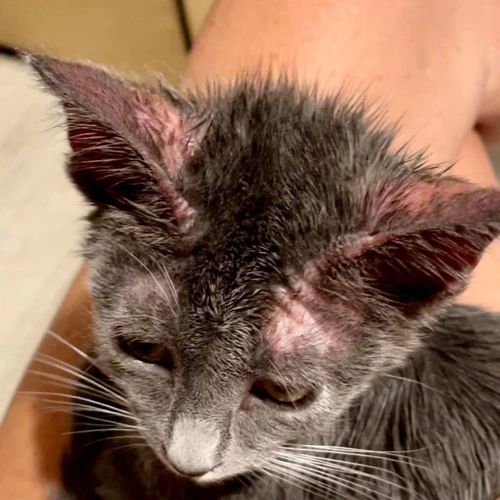
Vitamin deficiencies can cause serious health problems in American Wirehair Cats. Some of the common symptoms of vitamin deficiency in cats are as follows:
1. Loss of Appetite: Loss of appetite is one of the initial symptoms of vitamin deficiency in cats. If your cat is not feeling hungry or not eating as much as it used to, then it might be suffering from a lack of vitamins.
2. Skin and Coat Problems: Vitamins play a crucial role in promoting healthy skin and coat in cats. If your cat has a dull coat, dry skin, or itchy patches, then it may be a sign that your cat is not getting enough vitamins.
3. Weak Immune System: A lack of vitamins in your cat’s diet can weaken its immune system, leaving it vulnerable to a variety of infections and diseases. If your cat is frequently getting sick, then it might be due to the deficiency of vitamins.
4. Dental Issues: Vitamin deficiencies can also cause dental problems in cats. Cats with vitamin deficiency may have problems with their teeth, gums or jaw, which can cause pain and discomfort.
5. Digestive Issues: Vitamins are essential for proper digestion in cats. If your cat is showing signs of constipation or diarrhea, it may be due to a lack of vitamins in its diet.
It is important to keep in mind that these symptoms can also be caused by other health conditions. It is recommended to consult a veterinarian if you suspect that your cat has a vitamin deficiency. The veterinarian can conduct a blood test to determine the exact cause of your cat’s symptoms and recommend appropriate treatment.
Can Cats Get Too Much Vitamins?
It’s important to understand that while vitamins play a crucial role in maintaining your American Wirehair cat’s health, consuming too much of any vitamin can be harmful. This is especially true for fat-soluble vitamins, which can accumulate in your cat’s body over time, leading to toxicity.
Vitamin A toxicity: This can occur if your cat ingests too much liver or too many vitamin-A supplements. Symptoms of vitamin A toxicity can range from joint pain and dehydration to vomiting and even death.
Vitamin D toxicity: This can happen if your cat ingests too much of a vitamin D supplement or eats a diet that contains excessive amounts of vitamin D. Symptoms include diarrhea, vomiting, loss of appetite, and increased thirst and urination.
Vitamin E toxicity: Although uncommon, your American Wirehair cat can develop vitamin E toxicity through excessive supplementation. Symptoms of vitamin E toxicity can include lethargy, loss of appetite, and diarrhea.
Can cats get too much of water-soluble vitamins? Unlike fat-soluble vitamins, water-soluble vitamins such as vitamin C and B vitamins are not stored in your cat’s body for long periods. If your cat consumes excessive amounts of water-soluble vitamins, the excess will simply be excreted through urine. However, this doesn’t mean that you should over-supplement your cat with these vitamins, as it can still be harmful to their health.
It’s important to note that vitamin toxicity can occur not only through excessive supplementation but also through eating a diet that is too high in certain vitamins. Always consult with your veterinarian before giving your American Wirehair cat any vitamin supplements and avoid feeding them a diet that is not formulated specifically for their nutritional needs.
Conclusion
In conclusion, understanding the different types of vitamins essential for American Wirehair cats is crucial for maintaining their overall health and well-being. As pet owners, we have a responsibility to provide a balanced and nutritious diet for our furry friends. Vitamins play a vital role in keeping our cats healthy, from supporting their immune system to promoting healthy skin and fur.
It’s important to note that while vitamins are essential for our cats, too much of a good thing can be harmful. As a pet owner, it’s crucial to follow the recommended dosage and not over-supplement their diet. Always consult with your veterinarian before introducing any new supplements.
If you suspect that your cat may have a vitamin deficiency, it’s important to take action. Look out for any symptoms and consult with your veterinarian. With the right diet and supplements, you can help your American Wirehair cat live a happy and healthy life.
Ultimately, by providing your cat with a balanced and nutritious diet, you’re ensuring that they have the best chance at a long and healthy life. With the right care and attention, your American Wirehair cat can be a happy and loving companion for years to come. So, make sure to prioritize their nutrition and health, and give them the love and care they deserve.
Frequently Asked Questions
What sources of vitamins are recommended for American Wirehair Cats?
Vitamins can be found in a variety of sources. It is recommended to feed your American Wirehair Cat a balanced diet consisting of quality cat food and occasional treats.
Do American Wirehair Cats need supplements?
Supplements are not necessary if your cat is already eating a balanced diet. However, if your cat has a vitamin deficiency or has health issues, supplements may be recommended by a veterinarian.
Can American Wirehair Cats get all their vitamins from food?
Yes, American Wirehair Cats can get all of their necessary vitamins from a balanced diet consisting of quality cat food.
Is vitamin overdose a concern for American Wirehair Cats?
Yes, vitamin overdose can be a concern for American Wirehair Cats. It is important to follow recommended dosage guidelines and not over-supplement your cat.
Can a lack of certain vitamins affect a cat’s coat?
Yes, a lack of certain vitamins can affect a cat’s coat. For example, a lack of vitamin A can cause dry and flaky skin, while a lack of omega-3 fatty acids can lead to a dull and dry coat.
What are the benefits of vitamin A for American Wirehair Cats?
Vitamin A helps with a cat’s vision, reproductive health, and immune system. It also promotes healthy skin and coat.
What does vitamin C do for American Wirehair Cats?
Vitamin C can help boost a cat’s immune system and aid in wound healing. It can also improve the absorption of iron from food.
Can American Wirehair Cats produce their own vitamin D?
No, American Wirehair Cats cannot produce their own vitamin D. They need to obtain it through their diet or sunlight exposure.
What is the role of B vitamins in a cat’s body?
B vitamins play a role in energy metabolism, nerve function, and the production of red blood cells. They also keep a cat’s skin and coat healthy.
What are the most common symptoms of vitamin deficiency in cats?
The most common symptoms of vitamin deficiency in cats include lethargy, weight loss, decreased appetite, poor coat condition, and gastrointestinal issues.

